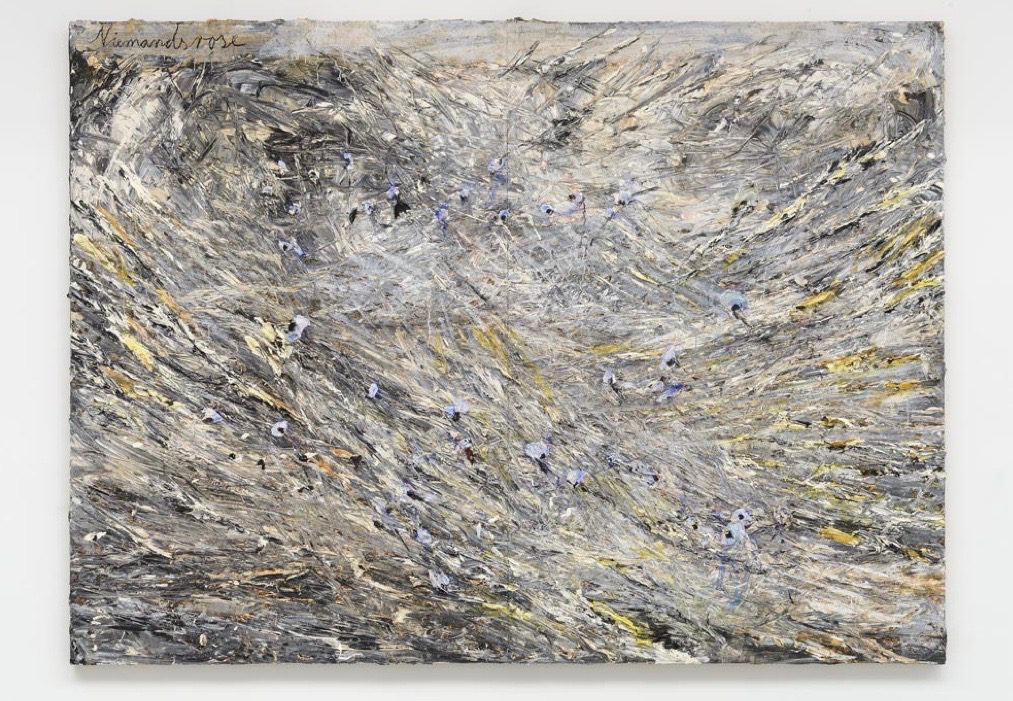San Francisco, CA — Philharmonia Baroque Orchestra and Chorale (PBO) presents the world premiere of THE NO ONE’S ROSE at Stanford University’s Bing Concert Hall on August 26–29, 2021. A production from American Modern Opera Company (AMOC) that combines music, dance, poetry, and theater, The No One’s Rose features a new score by Matthew Aucoin, set to the poetry of Holocaust survivor Paul Celan, alongside music by Bach, Berlioz, Schubert, Sam Cooke, and Paul Simon. The work, which explores deep questions of how to move forward and return to joy after a world-altering catastrophe, assumes even greater significance as the pandemic continues to shift.
Read more about The No One’s Rose here.
While the production’s original world premiere was scheduled for October 2020 and was cancelled due to the pandemic, PBO and co-commissioners Stanford Live and AMOC decided that they were still fully committed to this vital project. The production has evolved over the last 18 months as we face the beginning of the aftermath of the pandemic while acknowledging that the trauma, for many, is ongoing.
Despite the project’s apparent timeliness, The No One’s Rose has been in the making for six years, and started with a conversation between Aucoin and PBO on Celan and Bach and the possibility of composing for period instruments. It takes the form of a series of character portraits, brought to life by some of today’s top operatic talents: soprano Julia Bullock and tenor Paul Appleby, making their PBO debuts, and countertenor Anthony Roth Costanzo and bass-baritone Davóne Tines, both returning to PBO after lauded performances in Handel’s Aci, Galatea e Polifemo in 2020. Tines was recently named PBO Creative Partner, and Costanzo has been involved with the organization’s In the Office series.
The structure of The No One’s Rose loosely mirrors that of The Canterbury Tales: a series of stories, portraits in time, danced, sung, and played by these remarkable individuals navigating a shared circumstance—our actual circumstance—of processing the catastrophe of the last year and a half. Beginning in the world of Bach, representing the world as it was, the piece is soon taken over when something enters the air, scattering the company into isolation, and leading them into individual explorations of what is most urgent to them personally. The text of Paul Celan, who himself survived an even more unimaginable tragedy, serves as a spirit guide to forge a path into the future.
The all-star creative team for The No One’s Rose is led by Aucoin and Zack Winokur, the co-founders of AMOC. Although only 31 years old, Aucoin has been hailed as one of today’s most important composers and conductors. He served as LA Opera’s first-ever Artist in Residence from 2016 to 2020, where he conducted performances of Akhnaten, Rigoletto, and the world premiere of his own opera Eurydice, which comes to the Metropolitan Opera in the 2021/22 season. Additionally, he made history as the youngest-ever assistant conductor at the Met, where he served while pursuing graduate studies at Juilliard. Aucoin’s newest book, The Impossible Art: Adventures in Opera, will be published this December by Farrar, Straus and Giroux.
Winokur, a director, choreographer, and dancer, was appointed by Governor Andrew Cuomo to serve as curator for NY PopsUp, an initiative launched by Cuomo and New York State Council on the Arts to revitalize the state’s entertainment industry in the waning days of the pandemic. He also directed the critically lauded production of The Black Clown, starring Davóne Tines, at Lincoln Center’s Mostly Mozart Festival in 2019; and Perle Noir: Meditations for Josephine, starring Julia Bullock, at the Metropolitan Museum of Art. Rounding out the team are designer Carlos Soto, who also worked with Winokur and Tines on The Black Clown, and choreographer Bobbi Jene Smith, known internationally for her work with Batsheva, the acclaimed Israeli dance company.
“We’re very proud that we could reinvigorate The No One’s Rose, a project we’ve been working on for many years. We couldn’t have guessed that this production would be so uniquely prescient. PBO has been developing major projects over the past five years with many more on the way, and this production, grounded in and guided by the words of Paul Celan, is very meaningful. Long before the pandemic, we began important immersive collaborations with artists and producers who were changing the dialogue—American Modern Opera Company, Anthony Roth Costanzo, Anne Sofie von Otter, Caroline Shaw, and others, so when the big crisis came we were already primed for a future that would pick up where we left off,” says Courtney Beck, Executive Director of Philharmonia Baroque Orchestra and Chorale.
The No One’s Rose is made possible with major support from Carol and Douglas Tanner whose visionary leadership is reflected in their work on the boards of directors at Philharmonia Baroque Orchestra & Chorale and Stanford Live.
Anselm Kiefer, prolific German contemporary artist, has graciously provided to Philharmonia the use of an image from one of his paintings: Fadensonnen: es sind noch Lieder zu singen jenseits der Menschen. This work is based on the verse from Paul Celan’s famous poem “Thread Suns” — “There are still songs to sing beyond people.” Much of Kiefer’s work was influenced by Celan.





